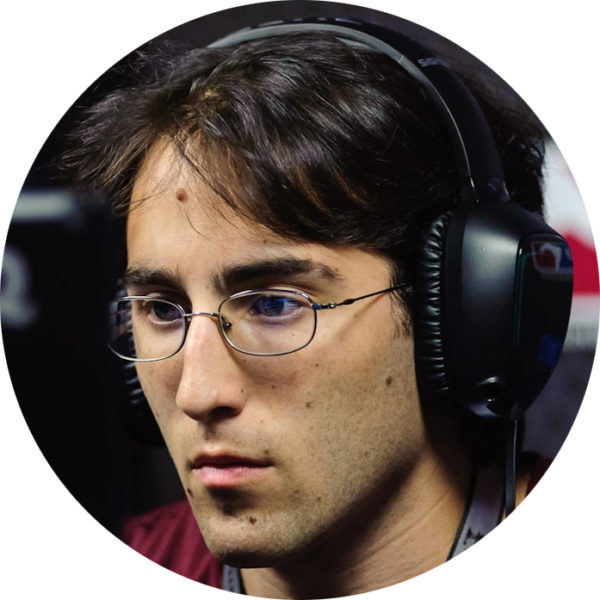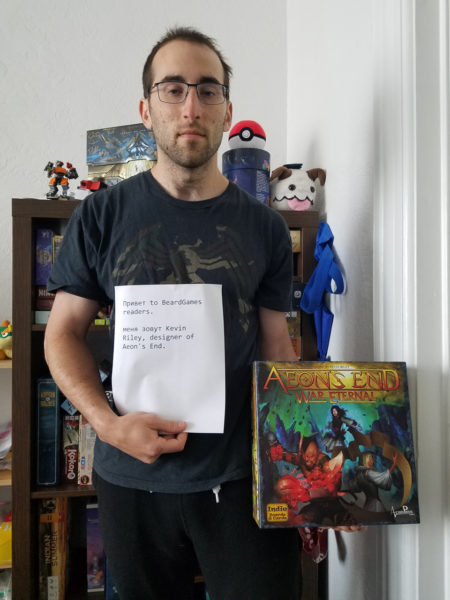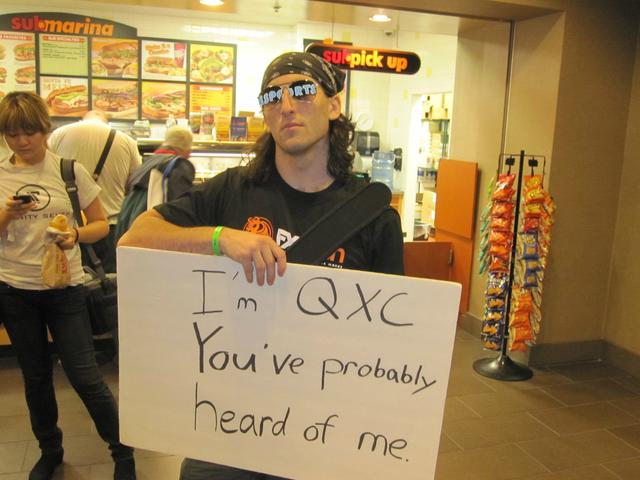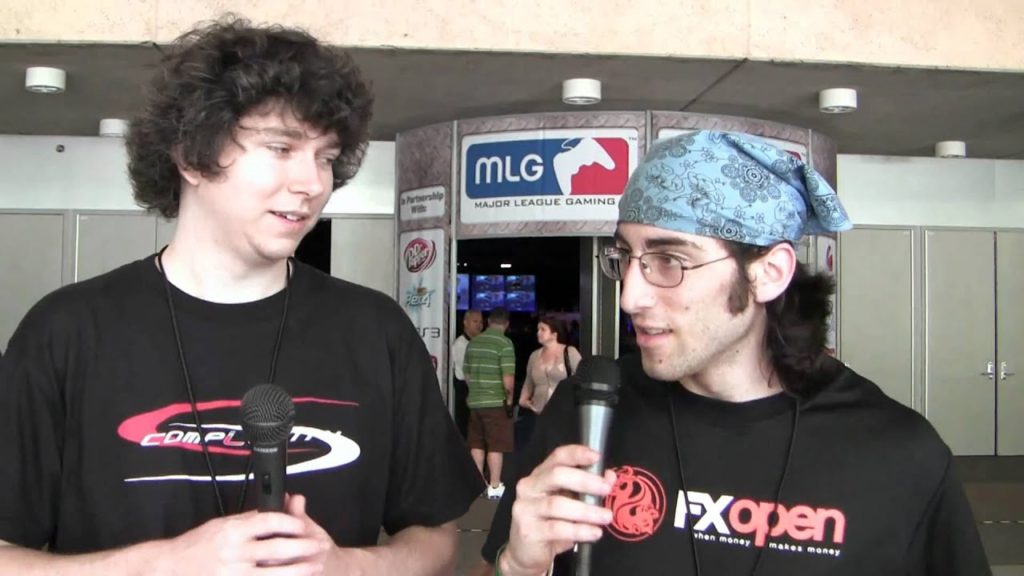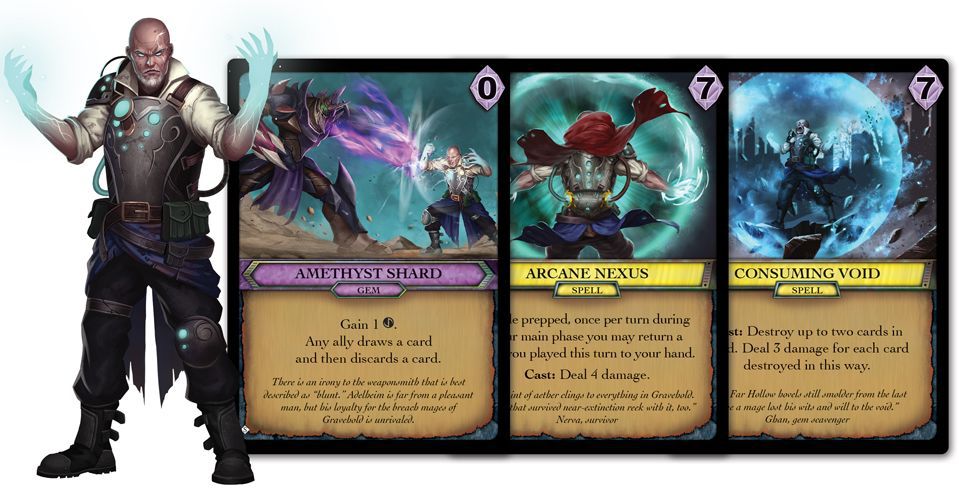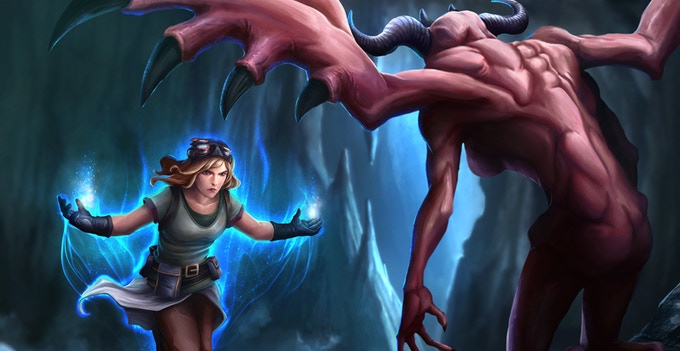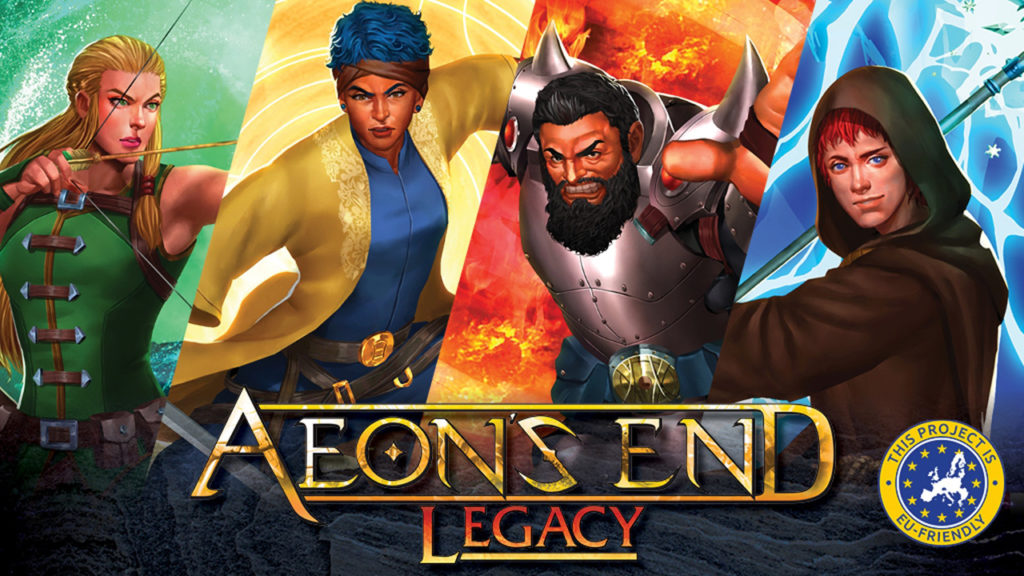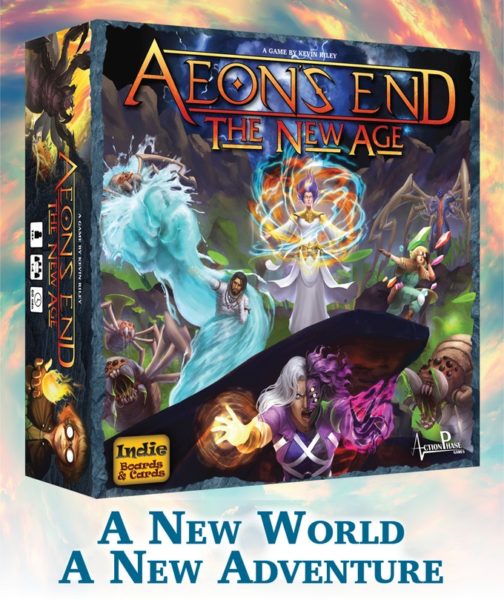I really enjoyed «Aeon’s End». I tried to describe all of its merits and interesting design choices in my review, which I would like to think managed to spark your interest. In the meantime, still under positive impression from «Aeon’s End» I decided to try and contact its designer, Kevin Riley, hoping he could tell how he came up with this idea and what inspired him during his work on his creation. To my surprise Kevin quickly agreed to be interviewed and was as quick with his replies, having lifted the veil of mystery a little bit and sharing his insights. So I hope you will find his answers as interesting as I did.
Allow me to introduce to you Kevin Riley and turn the floor to him.
Good day Kevin. We appreciate that you’re agreed to the interview. Even though your name is not well known among the Russian board gaming community, we decided to lay the corner stone in changing that. First of all, tell us a little bit about yourself.
My name is Kevin Riley. I’m 29 years old from Chicago, now living in San Francisco. Besides playing board games, I like many video games. More recently, I’ve been playing a lot of «Destiny 2» and «Slay the Spire». Besides that, I like to rock climb and play Ultimate Frisbee. I graduated with a computer science degree from Harvey Mudd College in Southern California.
For a while, I was a Pro-Gamer. I played in tournaments for «Starcraft 2» for many years, competing professionally under the name qxc.
What do you need to be qualified as pro-gamer? Is it the fact that you compete at all or that you compete at a certain level?
To be a pro-gamer, you just need to be really, really good. This usually involves playing full-time, hence the pro part. The line between amateur and professional is a bit blurry at times.
How difficult is it to be pro-gamer today? How successful were you? What is your highest achievement?
Being a pro-gamer gets easier and easier as games become more and more popular. There are more avenues to make it a full time profession as tournaments get bigger and streaming gathers more viewers. I was successful enough to do it for several years, but never as successful as I liked. My best achievement was probably defeating the Korean team «Incredible Miracle» one by one by myself. Called an «All-kill». The vods are here if you’re curious.
Out of curiosity, have you played against any Russian players?
I played against many Russian players and many Europeans in general. The Russian I knew the most went by the name Happy. I think it was supposed to be a joke because he never seemed very happy. I also played against many Ukrainians and played in a tournament in Kiev.
Since you said you “were” a pro-gamer, I assume you’re no longer in professional gaming. What made you retire? Was it because you started working on Aeon’s End and wanted to focus on it?
I retired from «Starcraft» in 2015 and began full-time game design shortly after. I retired because I wasn’t performing well enough and the life style was starting to make me crazy. I miss it sometimes, although I doubt I’d ever go back to playing a game as intensely as I did then.
How did you come up with the idea of designing your own game? How interested were you in board games before that?
I started designing «Aeon’s End» as a for-fun project with my girlfriend. Before making «Aeon’s End», we had played a bunch of different games. «Dominion» was our favorite for a long time. The idea to make «Aeon’s End» came from our desire to change «Dominion» to better suit our taste in games.
What did and didn’t you like in «Dominion»?
I like how variable every game of «Dominion» is. Each time you play you get a drastically different situation and a nice puzzle to solve. Unfortunately, putting together cool sets is cumbersome in real life, so I don’t ever play it except digitally now.
Gameplay wise, the major things I wanted to change are the «endless» turns. For example, I play a Lab, which draws me 2 cards to play a Lab to play a Lab to play a Lab to finally buy something that costs 6 or whatever. Some of the strategies in that game involve doing a lot of physical things with cards, moving them around, revealing them, shuffling etc. for little end product. «Aeon’s End» has virtually no card draw on your own turn and you almost never receive any new information after your turn has started. These two design goals make «AE» streamlined and play much more quickly, ensuring that no player has to wait too long before they get another turn.
What do you need to make your own board game, in your opinion? A mechanism to build a game around, or setting, or an idea?
All you need to make a board game is a general vision. I do a constraint-driven style of design early on, which is where I write down all the constraints of the game I’m working on. Things like, how many players, target complexity, length of each game, specific mechanics or themes I want to work in. When you have no constraints, your game could be anything. But it’s not possible to design «anything», you have to narrow it down enough to design «something».
Was the development of «Aeon’s End» a long process? How often and how drastically did the concept change along the way?
«Aeon’s End» took about a year to make, although much of that was not full time. We went through many iterations, but the biggest shift came when we turned it into a cooperative game. «Aeon’s End» was originally designed as a 1vs1 dueling game.
What is difficult to get the game released?
I was very lucky to find a publisher willing to take on my game. As a first time designer, it’s very hard to get people to believe in a project – to see past what you have right now and see what you can make together. My immense experience with games, previous design efforts and general work combined with «Action Phase Games» expertise to create a truly special game.
How quickly were you able to find a publisher? How involved is «Indie Boards & Cards» in the development and testing process? Do they provide inputs or force upon you their ideas or is development really up to you and your team?
I was lucky and found «Action Phase Games» at my first convention. While we didn’t sign a contract for many months, that was when we first met. I’ve tried pitching other designs to little success. Finding a publisher is extremely challenging. I work hand in hand with «Indie Boards & Cards» on the design of «Aeon’s End». While I have a huge amount of creative freedom, they have the last say on many things. Overall, the game is much better because of their continued involvement.
«Aeon’s End» is about a standoff between the mages of the underground city of Gravehold and the hordes of The Nameless that aim to wipe out the city’s population and destroy Gravehold. Even though the setting is not wholly original, it goes smoothly with gameplay. Who came up with the setting?
The grand idea of the setting was a collaborative effort between me, Nick Little and Travis Chance (the two founders of «Action Phase Games»). Travis Chance wrote nearly all of the narrative in its specific details. The lore available for «Aeon’s End» can be found in each game through the text on each mat. In «Aeon’s End Legacy», there’s additional narrative to read and in «The New Age» there’s even more. One of our major goals for «Aeon’s End» now is to continue to develop the world.
Slowly but steadily «Aeon’s End» crawled inside Top 100, and as of today sits comfortably on the 89th place. So congratulations are in order. Have you anticipated this kind of success?
I didn’t expect it to do so well. And I didn’t expect it to keep growing and drawing more attention. «Aeon’s End» has had sort of a ‘slow burn’ in its popularity. While it did well enough to continue to draw sequels, it seems like we consistently get new unexpected attention as we make more and more products. It’s a joy to see.
Currently «Aeon’s End» has several stand-alone expansions: «War Eternal», «Legacy» and «The New Age», plus a few smaller ones. What is the difference between them? What is their purpose, in general: is it to bring the initial concept to original vision, to develop the game or to just spread the previously created content among a number of boxes?
Each product is designed to emphasize a particular part of the product. «War Eternal» is our hardest product. It’s meant to be an extra challenge for those who found the original game too easy. «Legacy» is the best way to get introduced into «Aeon’s End». It eases players in slowly and offers a sort of tutorial as the complexity increases over time while also providing a more in depth narrative. «The New Age» is meant for people who liked «Legacy», the narrative it offered and now want to do that more. It offers a sort of mini legacy experience in the form of the replayable expeditions along with multiple smaller narratives.
What about small expansions? Do they bring something new to the table or are they just there to provide some more options in terms of nemeses, mages and market cards?
The small expansions for each wave are best thought of as an extension of the main stand-alone’s ideas. Small box expansions are always designed in conjunction with the big box and the splitting of what goes into which product comes relatively late in the process.
How well all the expansions can be combined with the base «Aeon’s End» and between themselves? Is it difficult to balance such a large number of cards and mages? Do you think you managed to pull it off?
Everything is meant to mix together and with each expansion we work on, this is an important thing that we test. While the game isn’t perfectly balanced, as a co-op game it’s more important that we give players many options. More varied strategies and opportunities to feel powerful by putting together many pieces of a combo are more important than perfect balance. And for players that find certain combos make the game too easy, they can either not use those combos or apply any of the many, many options we provide for increasing the difficulty of the game.
Is it difficult to keep coming up with new ideas for expansions?
Not particularly. «Aeon’s End» has such a rich complex engine that supports so much modularity that it’s easy to come up with new ways to put it all together. The hard part lately has been coming up with the right ideas that match what our audience wants next. For that, I ask a lot of questions and read a lot of forum posts, taking in all the feedback I can to decide the best next big idea to introduce.
How long do you plan to continue the series? Are there any long-term plans that you’re willing to share with our readers?
I can’t tell you because I don’t know myself. I didn’t think I’d get to expansion number 4. So it’s really anyone’s guess. We have started work on «AE5″…
Do you have any plans or ideas for a completely new game, not related to the world of «Aeon’s End» or deckbuilding?
I’m working on a few other games totally unrelated to «Aeon’s End», but nothing that’s particularly close to release.
Given time required to design, test and release board games, do you find the time to play? If you do, what genres and mechanics do you prefer and why? Do you have any interests outside of board games?
I don’t play a lot of board games just for fun anymore. I mostly play other deck builders and narrative focused games as they’re most applicable to what I work on. My for-fun time is mostly spent playing video games.
What board games can you say are your favorites and why?
«Village», «Robber Knights», «Mysterium», «New York Slice», «Castles of Burgundy», «Welcome to…», «Pandemic Legacy» S1/S2, «Fox and the Forest», «Valley of Kings»… for many different reasons. Some of these games I prefer because they’re really fun for me and some I prefer because I can play them with a more casual group without being bored to tears.
What board game impressed you the most of the whole period you’re familiar with them? What game was the most disappointing and why?
«Dominion» was my favorite game and certainly the one I played the most, but that was largely due to a very good digital implementation. Nowadays, my favorite game is «Village». Good mix of easy to learn, interesting to play and plenty of different strategies to pursue. The most disappointing games have been theme-rich/narrative games in general. These games tend to sacrifice everything in the name of ‘theme’ and they end up having bad mechanics and few meaningful gameplay decisions.
Thank you so much, Mr. Riley. We would like to wish you successful continuation of «Aeon’s End», new ideas and inspiration!

